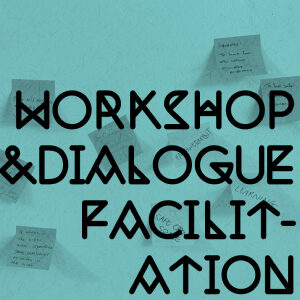Strategic
communications
We look beyond the pressures of consistently producing outputs to develop strategies that speak to the very heart of your organisation’s purpose. This work is grounded in an inquiry into the relationships in which you want to invest, the movements you want to build and the people you most desire to serve.
Cases

Communications Strategy
South Africa
Client: Sexual and Reproductive Justice Coalition (SRJC)
In a nutshell: Communications strategy designed to be contextually responsive and informed by the needs and vision of the coalition.
The challenge
The SRJC was going through a leadership transition period, which was seen as an opportunity to make changes to some of the ways the organisation worked. We wanted to shift the communications focus at the time from outputs, published ad hoc, to sink into a deeper connection with the organisation’s purpose, and how strategic communications could serve to realise it.
The process
By its very nature of being a coalition, the SRJC required its communications work to be responsive to the communications priorities of its constituents. We needed to think about whose work we wanted to visibilise, how and why, and who we want to target through our messaging. We designed and implemented a review of the advocacy landscape, using participative research methodologies, a mapping of the communications work of key partners and actors, an analysis of social media analytics and a review of key organisational documents. This data formed the basis for the development of strategic objectives, key messaging and a responsive work plan.
The result
We produced a communications strategy that centered the needs and priorities of the coalition’s members and articulated actions deeply connected to the organisation ’s goals of coalition strengthening, feminist knowledge building and solidarity. Since its implement ation, the SRJC has seen a more nuanced integration of its communications activities and the organic formation of new networks by and for different members of its constituency.
Skills implemented
- Project management
- Research design
- Deep listening during interview processes
- Design , creation and distribution of surveys, aimed at constituents working at grassroots level
- Analysis of social media analytics
- Organisational document review
- Data coding and analysis
- Strategy document planning and writing
- Receiving and integrating feedback on draft documents
- Editing and reviewing grammar, document structure and phrasing

Take Back The Tech! website
Global
Client: Association for Progressive Communications (APC)
In a nutshell: Content development and restructuring for the Take Back The Tech! website.
The challenge
Take Back The Tech! (TBTT) is a feminist call to action against technology-related gender-based violence founded in the global South.
Over the last decade, APC has hosted the programmatic and communications work of the Campaign, including its website. Due to the rapidly changing nature of technology and its socio-political implications, many of the information pages and practical resources shared on the website since its inception were by and large outdated. New content across all pages needed to be designed, developed and written.
The process
We worked closely with the APC focal point to identify current gaps in the content, understand audience, and to ‘nail the jelly to the wall’ in terms of how TBTT Campaigners view and understand what meaningful advocacy looks and feels like today, given the current digital landscape and trends in their local contexts.
Once we had clarity around what content needed to be present, we set about planning different sections of the website and their relation to one another.
Data was collected through interviews, project reports, policy documents and published research to gather, create and piece together the texts we desired to publish. Drafts of content were stored and shared on an independent server to preserve the safety of data.
The result
An easy-to-navigate shared folder of concise, relevant, and targeted pieces o f content in their final versions ready to be plugged into the new website structure. The content resonated with the new articulations of effective advocacy expressed by TBTT Campaigners, and reflected current considerations around definitions and trends in policy work.
Skills implemented
- Project management
- Research design and planning
- Effective communication and coordination with focal point
- Flexible and responsive process and project development
- Conducting of key informant interviews
- Policy review
- Lite rature review
- Organisational document review
- Data coding and analysis
- Web content mapping
- Writing
- Copy editing
Access more case studies:
our work in person?


